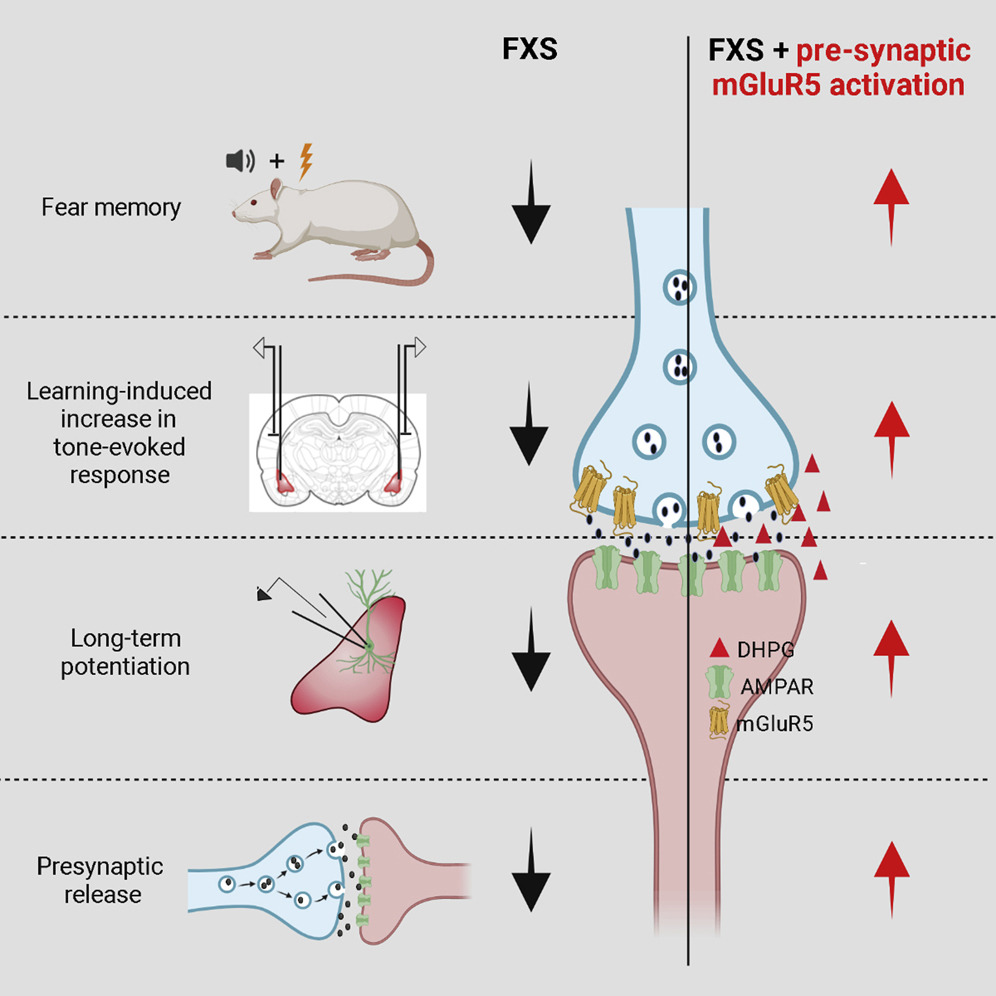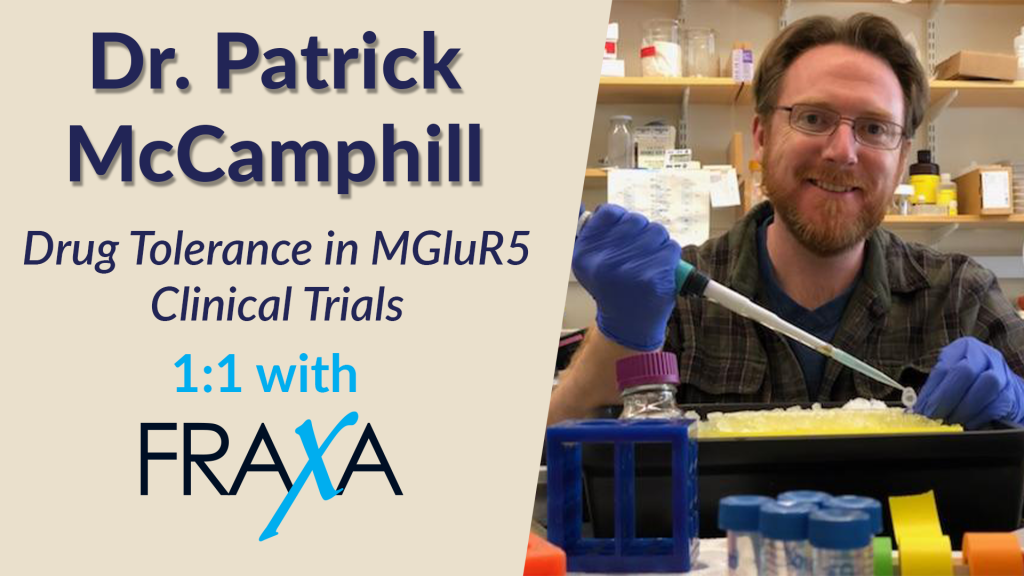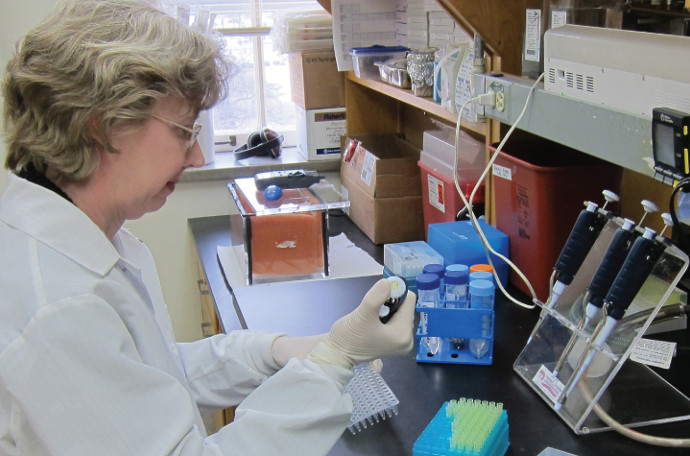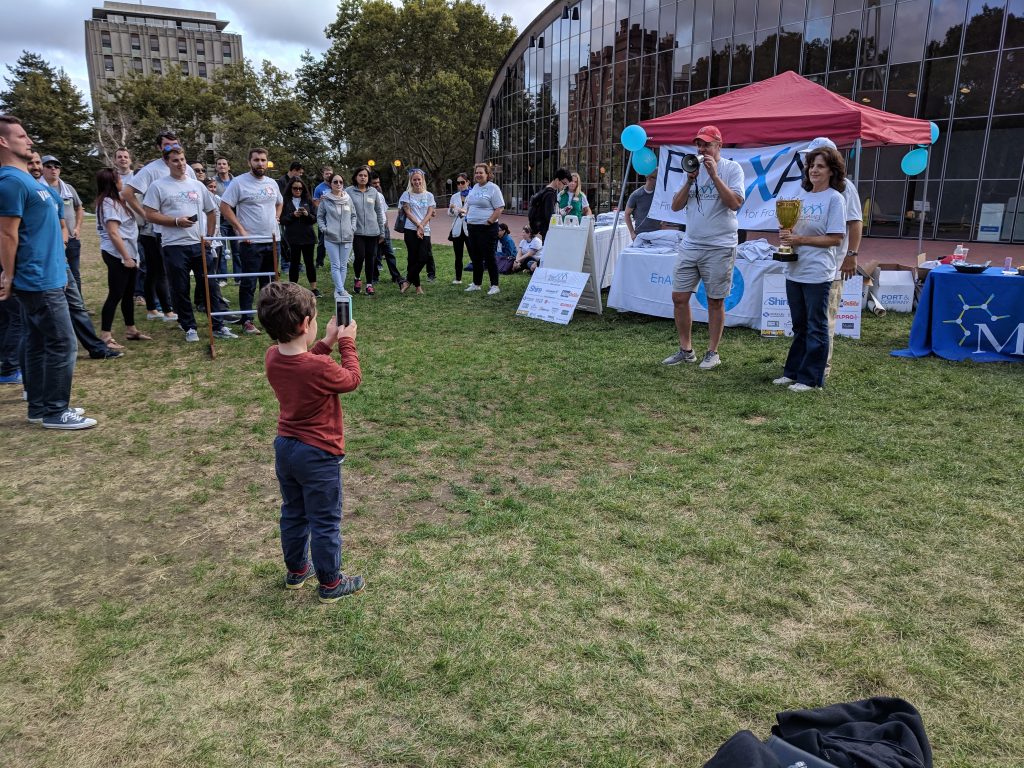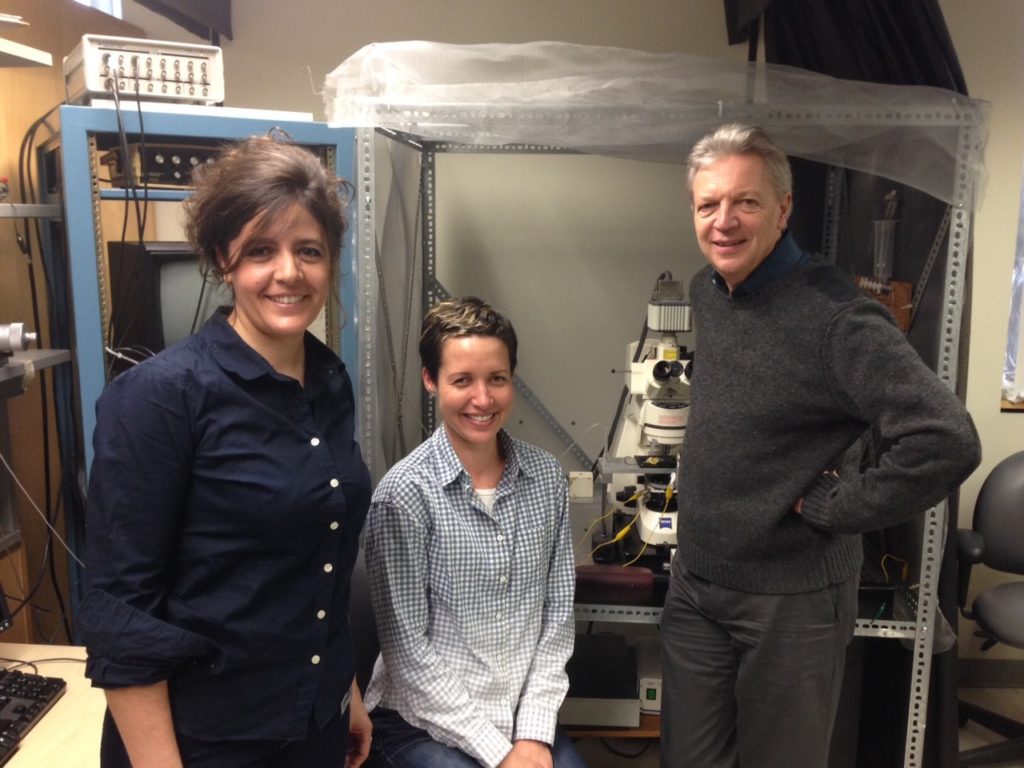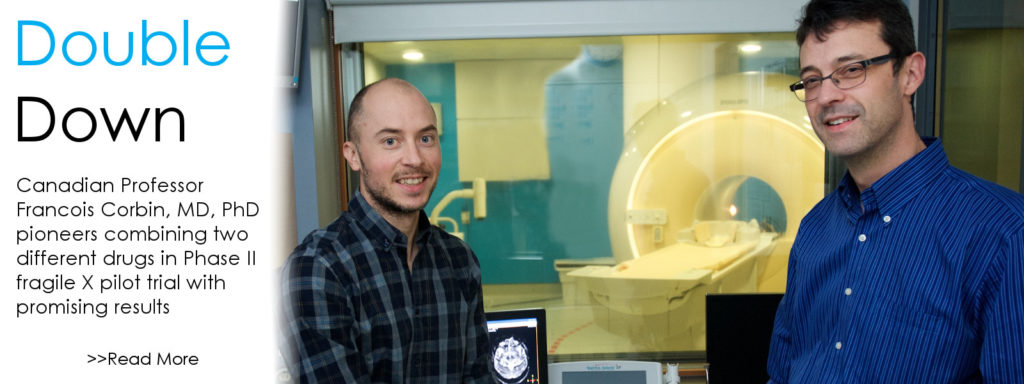The Endocannabinoid System and Fragile X Syndrome
This project will examine how CBD and other drugs targeting the endocannabinoid system affect hyperexcitable Fragile X neurons to identify new treatment strategies.
Correcting the Brain’s Emotional Memory Center
FRAXA Investigator Dr. Sumatra Chattarji investigated the synaptic basis of deficient conditioned fear and its reversal in Fragile X syndrome rats. Results published.
Drug Tolerance in MGluR5 Clinical Trials – Dr Patrick McCamphill 1:1 with FRAXA
We have long suspected that the clinical trials of mGluR5 blockers from Novartis and Roche failed because the drug triggered tolerance, losing effect over time. With a $90,000 grant from FRAXA, Dr. Patrick McCamphill, a Postdoctoral Fellow in the MIT lab of Dr. Mark Bear, is investigating. He does indeed find tolerance, and now he is looking for ways to overcome it.
Beneath the Surface of Fragile X Syndrome: Study Sheds Light on What’s Happening in Nerve Cells
This FRAXA-funded project has turned up some surprising results. At first, it might seem Kurosaki and Maquat have found yet another cellular process which is malfunctioning in Fragile X. But this finding is intimately related to previous findings of abnormal protein synthesis and misregulated transcription in Fragile X. FMRP (the protein lacking in Fragile X syndrome) is involved in chaperoning messenger RNAs within cells to active sites, and in controlling their translation into many different proteins. Some of these proteins are transcription factors, which feed back to the nucleus to control gene expression.
Healx Drug Repurposing Programme for Fragile X Syndrome
David Brown, MD, PhD, Ivan Angulo-Herrera, PhD and Anthony Hall of Healx present about the Drug Repurposing Programme for Fragile X syndrome.
Ketogenic Diet Eases Symptoms in Fragile X Male Mice
Westmark Lab is studying sleep patterns in Fragile X mice, working with UW-Madison to develop tools that speed EEG data analysis
FRAXA Biotech Games, the Beginning of Something Great
The first FRAXA Biotech Games united 42 Boston-area teams for friendly competition and fundraising to advance Fragile X research.
How Promising is CRISPR for Fragile X?
Peter Todd, MD, PhD, Assistant Professor in the Department of Neurology in the University of Michigan Medical School, was awarded a FRAXA Research Grant for gene reactivation with the use of CRISPR. In this interview he tells us about CRISPR in Fragile X research, how realistic is it that it could turn the Fragile X gene back on, and if it can really cure Fragile X.
Pharmacological Tolerance in the Treatment of Fragile X Syndrome
FRAXA funded MIT work to probe tolerance to key Fragile X drugs, including mGluR5 inhibitors and arbaclofen, and to identify ways to sustain long-term treatment benefits.
Newly Discovered Regulatory Pathways in Fragile X
Studies at Yale University and elsewhere are showing that FMRP plays a significant role in the regulation of potassium channels. Looking forward, potassium channel opener drugs could rescue some symptoms of Fragile X in humans.
Brain Imbalance Target of Dr. Erickson’s New Clinical Trial
According to Dr. Erickson, AZD7325 is a drug that selectively boosts GABA neurotransmission in the brain. GABA is the primary neurochemical in the brain that blocks brain activation. GABA activity is in balance in the brain with Glutamate activity, which is the primary neurochemical that causes brain activation. In Fragile X, GABA activity is insufficient and glutamate activity is excessive, likely causing brain activity to be out of balance. AZD7325 attempts to correct parts of this imbalance by boosting the insufficient GABA activity in the brains of people with Fragile X.
Mechanisms of Tolerance to Chronic mGluR5 Inhibition
FRAXA supported research showing mGluR5 antagonist tolerance develops quickly in Fragile X models, guiding new strategies to prevent or overcome it.
Fragile X Nervous (System) Breakdown
"The occurrence and development of events by chance in a happy or beneficial way." That’s how Lynne E. Maquat, PhD, describes the process of how her research extended to Fragile X syndrome to better understand it and ultimately find advanced treatments.
Repurposing Drugs to Dampen Hyperactive Nonsense-Mediated Decay in Fragile X Syndrome
FRAXA-funded research showed nonsense-mediated mRNA decay is overactive in Fragile X, pointing to existing NMD-suppressing drugs like caffeine as potential treatments.
Double Down: Fragile X Clinical Trial Combines Two Available Drugs
If all the science world’s a stage, Fragile X researchers are more than merely players. They are center stage. So believes Francois Corbin, MD, PhD, professor, Université de Sherbrooke, Canada, who directs the university’s Fragile X Clinic. Corbin, who has received more than $100,000 in FRAXA support since 2012, is leading a pilot randomized Phase II trial, exploring the tolerability and the synergistic effect of a combined therapy.
Boston Bruins Grant Funds New Fragile X Research
The Bruins Foundation pledged $90K to FRAXA, funding new Fragile X research at Gateway Farm in Merrimac, MA.
Roche reports clinical trial negative results
Roche has shared the sad news that their clinical trials in Fragile X have been unsuccessful. They will host a Webcast on Thursday, September 18, from 12:30pm – 1:30pm (EDT) to explain the results. For details and dial-in information please see this letter from Luca Santarelli, the Head of Neuroscience, Ophthalmology and Rare Diseases at Roche Pharma Research and Early Development on…
Fragile X Clinical Trial: Novartis Trial Results Are In, and They’re Not Pretty
This year’s Gordon Conference just finished, and Novartis presented their results for the first time (though advisors and advocates had been given a private peak months ago.) To say that the trial results for AFQ056 were disappointing would be the understatement of the century!
Clinical Trials FAQ ← Frequently Asked Questions
Wondering which Fragile X trial is right? Eligibility varies, so most families qualify for just one. Talk with your closest clinic to find the best fit.
A Metabolomic Drug Efficacy Index to Test Treatments in the Fragile X Mouse
This work revealed small-molecule metabolic changes in Fragile X brains and is using them to build a drug-efficacy index for screening therapies.
Compound that Inhibits mGluR5 Corrects Signs of Fragile X in Adult Mice
A Roche and MIT study published in Neuron finds that an mGlu5 inhibitor, CTEP, can reverse many Fragile X symptoms in adult mice.
3 Researchers Honored at FRAXA Investigators Meeting
FRAXA’s 2008 Investigators Meeting brought together 150+ researchers from around the world to collaborate and speed new Fragile X therapies.


